These cancers kill more people than breast and prostate but you’ve never heard of them
These cancers strike more people than breast and prostate cancer and their death toll is higher. See why thousands of Aussies are desperate for answers.
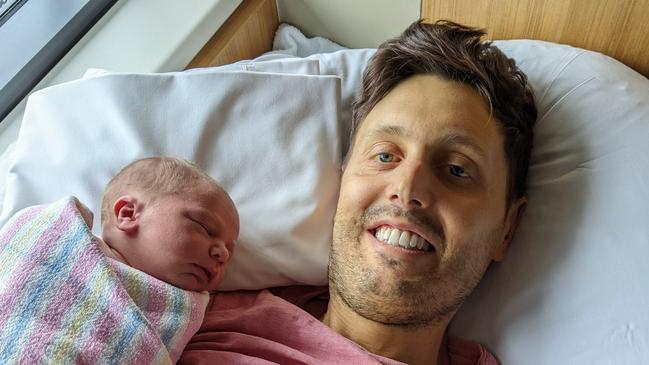
National
Don't miss out on the headlines from National. Followed categories will be added to My News.
EXCLUSIVE
They are among the deadliest cancers, taking the lives of 9000 Australians every year — usually within six months of their diagnosis.
Yet most people have never heard of Upper Gastrointestinal (GI) cancers; they get no funding, have no celebrity backing, no support nurses and virtually no research into their causes or cure.
“So often we hear patients say to us that they ‘feel like they’ve got the wrong cancer’,” Pancare chief executive Doug Hawkins said.
“Most people don’t even know what these organs are or anything about the cancer.”
Upper GI cancers attack the pancreas, liver, stomach, bile ducts and oesophagus.
Across Australia, 14,000 people were diagnosed with them last year — four times more than the number getting higher-profile breast or prostate cancers annually.
Tragically, they are usually diagnosed too late, when the cancer has already spread making them much harder to treat.
They have among the lowest survival rates of any cancer. Just 12 per cent of people diagnosed with pancreatic cancer will survive for five years. For oesophageal cancer, it’s 23 per cent and for liver cancer, it’s 22.
This compares to the five-year survival rates of 95 per cent of prostate cancer patients, 92 per cent of breast cancer patients and 75 per cent of those with bowel cancer.
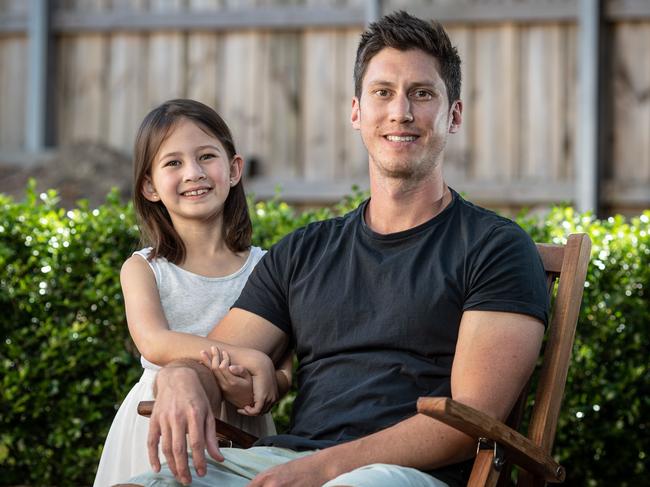
“There’s been 40 years of zero federal government funding of any real significance into these cancers — they’ve been overshadowed by more popular, better marketed higher profile celebrity-backed corporate programs that have created a massive gap,” Mr Hawkins said
“By comparison to the money that’s spent on the other diseases it’s embarrassing … inequity, that’s probably the word.”
To end the neglect, charity Pancare is asking the federal government to provide $110 million in this year’s May budget for research into causes and prevention of upper GI cancers.
It wants to discover if there are any genes involved, find biomarkers and familial links.
More funding is needed to improve outcomes for patients with upper GI cancers immediately, including increased access to patient and nursing support services.
The symptoms of these cancers are so general they’re difficult to detect and treatment options are currently very limited, if there are any at all.
Pain management is difficult and treatment is complex because the cancers have knock on effects into other organs. This can make it difficult for patients to digest foods which severely impacts their health.
“They are so lethal and so aggressive people with the cancers rarely live long enough to advocate for their cause,” Mr Hawkins said.
‘SHE DIDN’T WANT TO DIE’: WIDOWER
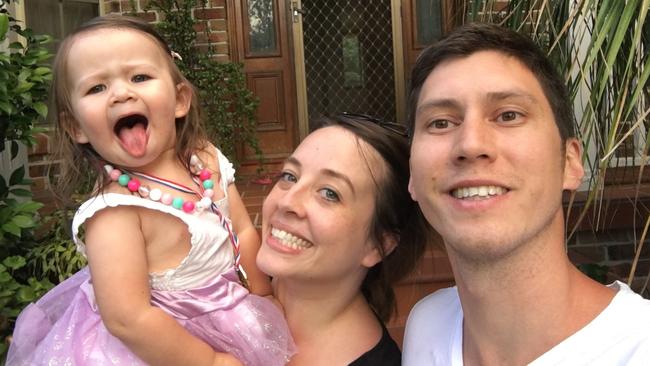
Hayley Sparkes was just 34, happily married and expecting her second baby when she received a shock pancreatic cancer diagnosis.
Just a few months later she was dead.
“It was about five months from the initial hospital entry up to the point where they stopped treatment,” widower Alex Sparkes, 39, said.
“She put on a brave face for both myself and (daughter) Maisy and she was obviously going through her own battle with emotions.
“We could obviously tell that she was scared and she didn’t want to die and she was battling as hard as she could. And she spent as much time with Maisy as she could but yeah, it was super tough.”
Excruciatingly, the couple had not long after her diagnosis decided to terminate her second pregnancy.
The treatment required for the aggressive disease, which had already spread to her bones and soon emerged in her brain, meant she risked harming her unborn child.
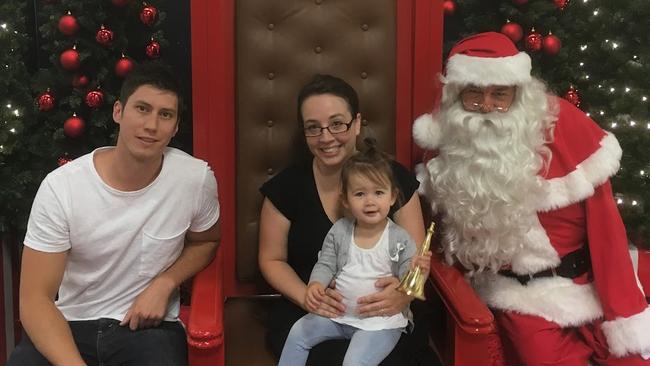
Initially, radiation treatment and chemotherapy controlled the cancer and Hayley was able to walk again.
Then she developed a severe swelling reaction to treatment, the cancer emerged in her gut, she started to lose her balance and one day could no longer speak because it had spread to her brain.
“It was basically the doctor’s opinion that she was now in a state where any further treatment was, was not going to do her any better,” Mr Sparkes said.
Mr Sparkes, from Cherrybrook in Sydney, said too often pancreatic cancer was discovered when it was too late for treatment and he is desperate for more research funding.
His wife’s cancer was only discovered by chance, after she collapsed with back problems.
She had dismissed generalised symptoms of tiredness as pregnancy-related.
“We need to safeguard the future for people like Maisy, who now has pancreatic cancer history in her family, especially at a young age,” he said.
“The earlier we get an answer for her and a possible screening process and even treatment if she develops this illness the better.”
‘INCREDIBLY CONFRONTING’: CANCER KEPT RETURNING

Julian Jefferis had eight days to live when his wife Allison opted to give birth early so their son Percival could meet his father.
Battling late-stage pancreatic cancer, he attended the birth at Brisbane’s Mater Hospital.
“He was there for the birth which was phenomenal and he was mentally with it, and it was just the most intense moment of my life,” said Mrs Jefferis.
“Every day my sister would just wheel Percy over from the other hospital. And we’d sit there and breastfeed and you have this beautiful newborn baby and a dying man.
“The last photo on his (Julian’s) phone is of Percy. And it says a lot about someone’s mental space, doesn’t it? To take a photo even though you’re going to die.”
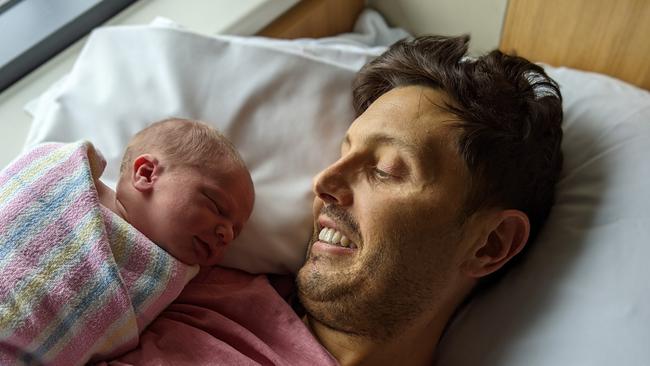
Aged just 32, Julian was a strapping six foot five former rugby player who weighted 110 kilos when his stomach troubles were diagnosed as pancreatitis and he was told to take antacids.
The diligence of a doctor who insisted on a final follow up scan and a blood test revealed what he was actually suffering was acinar cell carcinoma — a rare form of pancreatic cancer that only affects one per cent of people with pancreatic cancer.
In the three years after the diagnosis, the couple chased every possible treatment including surgery to remove two thirds of Julian’s liver, a third of his pancreas and his gallbladder.
He also tried immunotherapy and took part a clinical trial of a targeted therapy.
But the cancer kept coming back.
At the same time as he was being treated, his wife was undergoing multiple rounds of IVF before she finally fell pregnant in 2020.
When the final treatments stopped working, Mrs Jefferis said: “it was incredibly confronting and I was heavily pregnant. I think I was 35 weeks at that stage”.
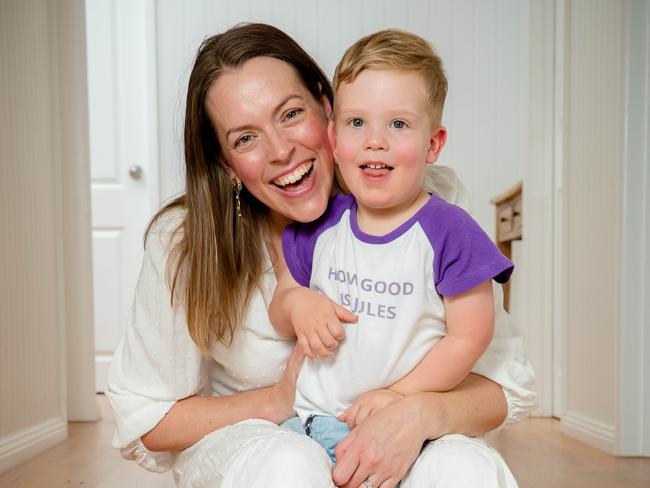
Mrs Jefferis is dedicated to raising awareness of the cancer and wants more funding for research.
“I just think there’s a stigma about talking about gastrointestinal diseases. You don’t sit around and talk about and say, ‘Oh, I passed a pale stool’,” she said.
“People don’t know enough about their own organs.
“How can I get other people to listen to their bodies and really stick up for themselves when they go to the doctor so they’re not told just go home and have some antacid. Jules was just so lucky to have this gastroenterologist specialist who said, let’s do another scan.”
More Coverage
Originally published as These cancers kill more people than breast and prostate but you’ve never heard of them





